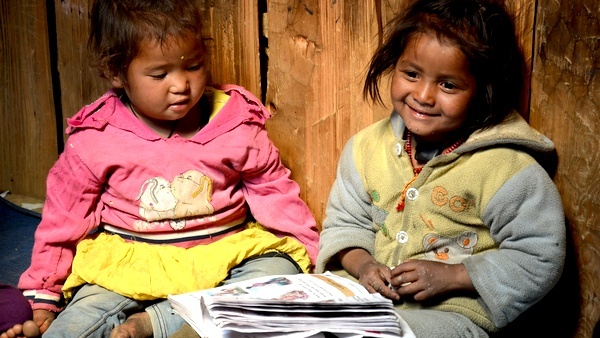. BILDUNGSQUALITÄT .
. DIGITALE LEHRMITTEL - BESSERE ZUKUNFT? .
MIT SICHERHEIT wird die digitale Entwicklung in der Grundschule nicht halt machen. Eine Transformation ist in den meisten Ländern schon voll im Gange. Das Informationszeitalter 4.0 hat die persönlichen Anforderungen für die Teilnahme am sozialen und beruflichen Leben grundlegend verändert. In einer global vernetzten Welt in der Informationen und Wissen im Überfluss vorhanden sind, braucht es neue Komptenzen für eine erfolgreiche Lebensgestaltung. Alte Bildungskonzepte unserer Grundschulen die auf die Industrialisierung Anfangs letzten Jahrunderts zurückzuführen sind werden zunehmends von der Lebensrealität überholt. Damit das Fundament des Lernens unsere neuen Arbeitswelt gerecht werden kann, wird mit der digitalen Transformation auch eine neue Qualität in der Bildung gefordert, die auf einer agilen und mobilen informationsbasierten Gesellschaft aufbaut.
wiLearn 4 Life ist überzeugt, dass eine solche Transformation des Lernens schon längst überfällig geworden ist. Our conviction turned into a committment has been rooted in observations, personal experience and learnings throughout the last decade of project management in developing and gragile countries. Looking back at our analog school years we notice that everyday learning processes have little in common with the principles before the 4.0 information revolution. Today in the industrialised world we take internet connectivity for granted and life has been subjected to digital tranformations. Learning for life in the information age has a new meaning. While not all available knowledge at the push of a button is beneficiary or healthy it requires new competencies to search and select the material that support our growth, our values and our aims. The net provides answers, opinions and documented experiences to almost any question one can think of. In search of edifying quality information the trick is to start with the right questions. Children if given the early stimulation and opportuntiy are naturally driven by their curiosity at a very early age. Such behaviour has been ubruptly haltet at the first day at school as they have to abide by the standards the school is setting. Such education practices that debilitate the child in its discovery mode need urgent tranformation.
The wireless learning labs from wiLearn 4 Life are making the inquiry based learning easy to apply and can be used right from the beginning of early education. With the ability of global sharing the opportunties are overwhelming. They enable the curious learner to think in global perspectives and apply principles to local and personal situations. The solution finding has become very wide and divers such that it requires critical thinking for ones personal gain. These competencies should not be the priviledge of the rich living in affluent countries, but the basic right to everyone, especially the people hoping to escape poverty.
An abundance of studies about the impact of eLearning and pupils performance resulted in a variety of conclusions with ample reservation when it comes to the positve effects of eLearning with ICT. However, not all the benefits we enjoy today need a randomised control trial to proof a concept, because life teaches us otherwise. People are smart enough to find out what benefits them most because that's where they invest their energy and resources. "Airtime" or bandwidth has become the new currency reigning over all other industries. A good example is MPESA in East Africa. Nobody has forseen that mobile cash will grow faster in developing countries than in our so called developed world. It entered the lifes of nomads as a side effect of an innovative solution for a real cash problem in remote areas. People now learn on the go, even illiterates learnt to handle smart phones, cash transfers and SMS to meet their needs to communicate and connect.
I am convinced that a new generation of learners will evolve. They will use tomorrows multimedia learning centers to advance their personal cause and design their career path to become participants in a global community. We are obliged not to hesitate or procrastiate in proviing equal chances to people in remote locations as fast and as efficiently as possible.

To answer the initial question in a more academic way, I will list a few studies here, that you might find interest in. Overall, wou will be able to dig out arguments for eLearning and arguments against it. My philosophy is; let us liberate the people in crisis and poverty from isolation and marginalisation by letting them choose their learning path for themselves by providing equal opportunities.
My preferred eLearning Research references:
Unlocking talent: Evaluation of a tablet-‐based Masamu intervention in a Malawian Primary School | Dr. Nicola Pitchford
Evidence of significant learning gains | One Billion - based on Dr. Pitchfords findings in Malawi and the UK
Research on the Use of Khan Academy in Schools - 2014| SRI Education
SRI Education's two-year study involved nine sites, 20 schools, and more than 70 teachers.
(Khan Academy is available on the RACHEL Plus Server)
Localization of Open Educational Resources (OER) in Nepal: Strategies of Himalayan Knowledge-Workers | Tiffany Ivins
(relevant for our Nepal community learning lab)
Open Education Resources and Mobile Technology to Narrow the Learning Divide | Ally & Samaka
Teacher education and ICT: some points for consideration from the UK |T.Haydn
If YOU have current and pertinant knowledge about relevant studies and findings about learning outcomes through digital education practices please share in our Blog at the bottom of the entry page .


